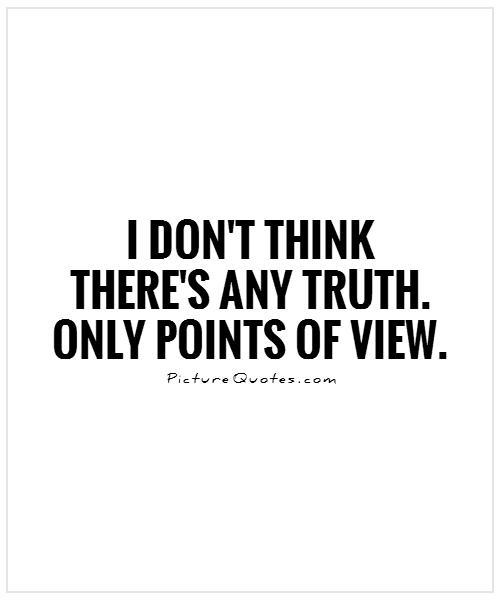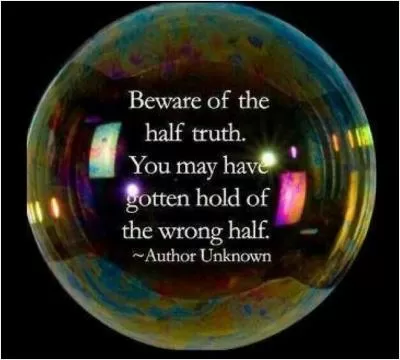I don't think there's any truth. Only points of view

I don't think there's any truth. Only points of view
The statement "I don't think there's any truth. Only points of view" raises a fundamental question about the nature of truth and the way we perceive it. In the realm of truth words, this statement challenges the idea that there is an objective reality that exists independently of our perceptions and interpretations. Instead, it suggests that truth is subjective and dependent on individual perspectives.One way to interpret this statement is through the lens of relativism, which posits that truth is relative and varies depending on the context and the observer. According to this view, what is true for one person may not be true for another, as truth is shaped by personal experiences, beliefs, and biases. In this sense, truth becomes a matter of perspective rather than an absolute, objective reality.
Another interpretation of this statement is through the concept of postmodernism, which questions the existence of a single, universal truth. Postmodernism argues that truth is constructed through language, discourse, and power dynamics, and that different points of view can coexist without necessarily being in conflict. In this view, truth is not a fixed entity but a fluid and constantly evolving concept that is shaped by social, cultural, and historical factors.
The idea that there is no truth, only points of view, challenges us to reconsider our assumptions about the nature of reality and the way we communicate about it. It invites us to be more open-minded and tolerant of different perspectives, recognizing that there are multiple ways of understanding the world and that no single viewpoint can claim to have a monopoly on truth.












 Friendship Quotes
Friendship Quotes Love Quotes
Love Quotes Life Quotes
Life Quotes Funny Quotes
Funny Quotes Motivational Quotes
Motivational Quotes Inspirational Quotes
Inspirational Quotes